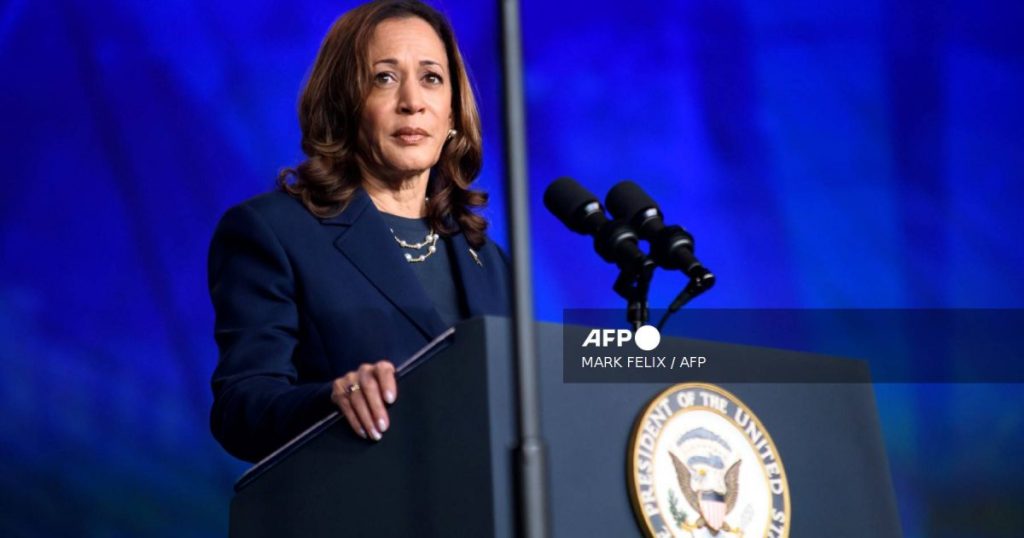Kamala Harris will celebrate her 60th birthday this Sunday, but the attention surrounding her celebration is overshadowed by scrutiny of her main rival, Donald Trump, who is currently under fire for his advanced age and increasingly erratic public behavior. As the race for the White House intensifies, Harris has ramped up her criticisms of Trump’s mental fitness, particularly following a recent town hall event where he engaged in what many deemed a bizarre 40-minute performance swaying to music. Harris seized on this moment, asserting, “Donald Trump is becoming increasingly unstable.” Despite it being her birthday weekend, she is unlikely to take a break from campaigning, as both she and Trump focus on pivotal battleground states ahead of the November 5 election.
Age has become a central theme in the 2024 presidential race, a factor that has gained even more prominence as Trump continues to make headlines with his public behavior. Harris’s ascent to the Democratic nomination follows an unexpected shift in favor of a younger candidate after President Joe Biden, at 81 years old, withdrew due to a poor debate performance against Trump. The selection of Harris as Biden’s replacement injected new life into the Democratic campaign, allowing her to close the gap in the polls with Trump. In earlier comments, Trump seemed to acknowledge Harris’s youthfulness, remarking on her age and giving her an unexpected compliment, showing that age is a persistent topic of conversation this election cycle.
As the polls have stagnated for weeks, Harris has utilized Trump’s age as a tactical arm in her campaign. On October 12, she released her medical report, touting her “excellent health” and addressing only minor issues like seasonal allergies. This direct contrast was pointed: while she shared her health details, Trump has been less forthcoming regarding his own medical history. Harris’s campaign has increasingly questioned what Trump might be hiding about his health, suggesting that his refusal to release a comprehensive medical report may indicate something troubling. The Democratic candidate has also referenced Trump’s dark rhetoric, including his suggestion of using military force against internal enemies, as evidence of distress and unfitness for office.
Public opinion reflects some of these concerns. Polls indicate that fewer people view Trump as “mentally sharp” than in earlier months, with the percentage declining from 58% to 52%. Furthermore, a significant portion of voters, 49%, believe Trump’s age might impede his candidacy, while nearly half of respondents think that Harris’s being younger is an advantage. Still, navigating the perception of age in a political landscape can be complex, particularly with Harris’s strong support among younger voters juxtaposed against older demographics who tend to favor Trump. CBS polling revealed that among voters aged 45-64, Trump leads Harris, and the gap widens dramatically among those 65 and older.
However, Harris also faces the challenge of age-related biases, particularly given the intersection of age and gender in American society. Experts note that societal attitudes towards older women often carry an insidious bias that complicates how they are perceived in leadership roles. Nancy Hirschmann, a professor of American Social Thought, elaborates on the significant implications of sexism against older women, especially in the context of Harris’s candidacy. Also, Trump’s running mate, J.D. Vance, has been criticized for making dismissive remarks about older women, which could resonate negatively against Harris, who is navigating her role as a woman in politics while facing both ageism and sexism.
In conclusion, Kamala Harris’s 60th birthday serves as a pivotal moment not merely for celebration but also as a significant point of focus in a critically charged presidential race. As both she and Trump vie for dominance in the polls amidst growing scrutiny of his age-related fitness for office, they embody contrasting narratives of generational politics. Her efforts to undermine Trump’s candidacy through age-related critiques reflect both a calculated political strategy and a broader commentary on the complexities of age and gender in leadership. As the election date approaches, the evolving dynamics between Harris and Trump, along with the public’s perception of their respective ages, will undoubtedly shape the political landscape, underscoring both the challenges and intricacies of the campaign ahead.














